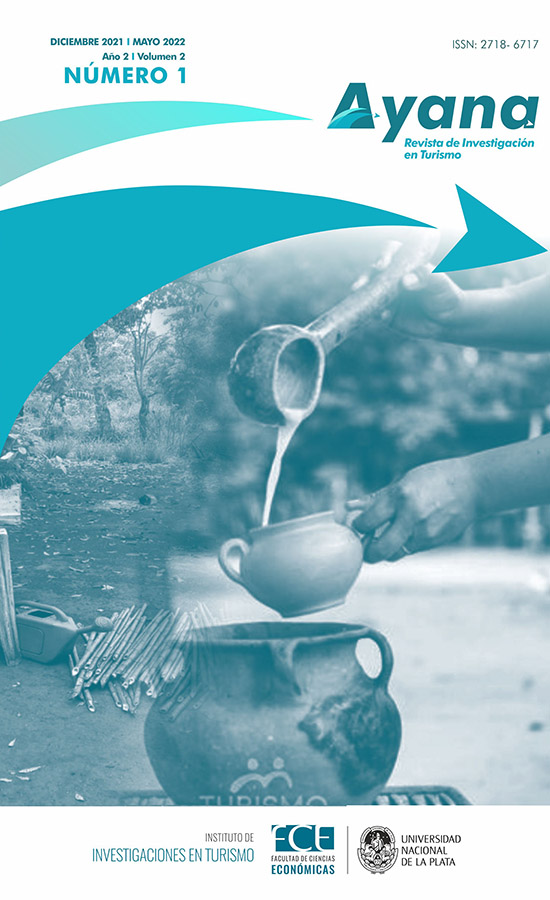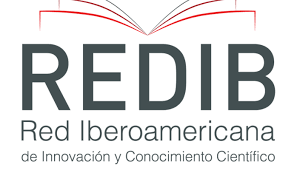The role of tourists in the dispute over discourses on the indigenous past
The Case of Quilmes (Tucumán, Argentina)
DOI:
https://doi.org/10.24215/27186717e013Keywords:
passado indígena, política, território, turismoAbstract
In this article, the role of tourism in the replication of narratives about the indigenous past is discussed, based on the case of the Sacred City of Quilmes (Tucumán, Argentina), which has been part of the tourist circuit of the Calchaquí Valleys since its reconstruction during the de facto government. After years of private use, its recovery by the Quilmes Indian Community in 2008 produced a work of revision and reconstruction of its own narratives about the past and the present, which showed a profound interweaving among the material past, identity, communality, and territory. Subsequently, a new advance of the provincial state’s commercial tourism plan on the site reformulated these narratives and displaced several meanings that the Community had highlighted. Based on field material and a review of newspaper articles about this process, I will ask myself about the role of tourists in this process.
If they drive the tourist market as consumers, is it possible to consider them —beyond their economic importance— as a set of possible vectors for the dissemination of narratives and, therefore, as “resources” for the political construction of communities in territorial struggle? And if so, how are they contested by the state agency?
Downloads
References
Becerra, M. F., Pierini, V., Rodríguez, L., Sidy, B. & Autorx (2012). De ollitas y paredes volteadas a urnas y monumento patrimonial. La Comunidad India de Quilmes y las resignificacion.es del sitio arqueológico a partir de la reconstrucción. Nuevo Mundo Mundos Nuevos. Nouveaux mondes mondes nouveaux-Novo Mundo Mundos Novos-New world New worlds.
Becerra, M. F., Crespo, C., Pierini, V., Ramírez, V., Rodríguez, L., Sidy, B. & Tolosa, S. (2013). Dinámicas de poder y saber en la reconstrucción de la “Ciudad Sagrada de Quilmes” (Tucumán 1977-1981). Alteridades 23 (46), 67-77.
Bonfil Batalla, G. (1991). Pensar nuestra cultura. Alianza Editorial.
Brow, J. (1990). Notes on Community, Hegemony, and the Uses of the Past. Anthropological Quarterly 63(1),1-6.
Comaroff, J. & Comaroff, J. (2011). Etnicidad S.A. Katz Editores.
Corrigan, P. & Sayer, D. (1985). The Great Arch: English State Formation as Cultural Revolution. Basil Blackwell.
Crespo, C. (comp.) (2014). Tramas de la diversidad. Patrimonio y Pueblos Originarios. Antropofagia.
Endere, M. L. (2001). Arqueología y Legislación en Argentina. Cómo proteger el patrimonio arqueológico. INCUAPA.
Florescano, E. (comp.) (1993). El patrimonio cultural de México. México: FCE.
García Canclini, N. (1999). Los usos sociales del patrimonio cultural. En Aguilar Criado, Encarnación (ed.) Patrimonio Etnológico. Nuevas perspectivas de estudio,pp. 16-33. Andalucía: Consejería de Cultura.
Giudicelli, C. y Tolosa, S. [En prensa] Extranjeros en su propia tierra. La teoría de los quilmes chilenos (1883-1918).
Grossberg, L. (1996). Identity and Cultural Studies: Is That All There Is? En Hall, S. & P. Du Gay (eds.) Questions of Cultural Identity, pp. 87-107. Sage Publications.
Hobsbawm E. & Ranger, T. (eds). (1989). The Invention of Tradition. London: Cambridge University Press.
Morand Deviller, J. (1996). Le Droit de l´Enviromment. Presses Universitaires de France.
Pierini, V. (2011). La Comunidad India de Quilmes en la década de 1970. Reflexiones iniciales sobre la historia de su organización política y comunitaria. En Rodríguez L. (comp.) Resistencias, conflictos y negociaciones. El Valle Calchaquí desde el período prehispánico hasta la actualidad, pp.197-209. Buenos Aires: Prohistoria.
Prats, L. (1996). Antropología y Patrimonio. Barcelona: Ariel.
Prats, L. (2000). El concepto de patrimonio cultural. Cuadernos de antropología Social, 11, 115-136. https://doi.org/10.34096/cas.i11.4709
Rodríguez, L. (2009). Los usos del sistema judicial, la retórica y la violencia en torno a un reclamo sobre tierras comunales. Amaicha del Valle, siglo XIX. Runa, 30(2),135-150. https://doi.org/10.34096/runa.v30i2.769
Rosas Mantecón, A. (2005). Usos y desusos del patrimonio cultural: retos para la inclusión social en la ciudad de México. Anais do Museu Paulista 13(2), 235-256.
S/A. (2 de febrero de 2018). Siempre dolió la expulsión de los Quilmes de aquí. El tucumano. https://www.eltucumano.com/noticia/libre/246630/siempre-dolio-la-expulsion-de-los-quilmes-de-aqui
S/A. (8 de febrero de 2019). El Centro de Interpretación de Quilmes ya deslumbró a más de 100 mil personas. Tucumán Turismo. https://www.tucumanturismo.gob.ar/prensa/16405/el-centro-de-interpretacion-de-quilmes-ya-deslumbro-a-mas-de100-mil-personas
S/A. (30 de julio de 2019). Megapuesta tecnológica en La Ciudad Sagrada de Quilmes. Comunicación Tucumán http://comunicaciontucuman.gob.ar/2019/07/megapuesta-tecnologica-en-la-ciudad-sagrada-de-quilmes/
Sosa, J. (2007). “Ruinas” de Quilmes. Historia de un despropósito. Indymedia Argentina. http://media.argentina.indymedia.org/uploads/2008/01/kilmes.pdf
Sosa, J. (2015). Amaycha, la identidad persistente: Desterritorialización y reterritorialización de una comunidad tricentenaria(XVIII a XXI). [Tesis doctoral, Universidad de Buenos Aires]. http://repositorio.filo.uba.ar/handle/filodigital/2958
Tolosa, S. (2014). El diálogo incesante. Comunidad India Quilmes, construcción política y poder del estado. Revista Colombiana de Antropología, 50(1), 55-81. https://doi.org/10.22380/2539472X56
Tolosa, S. (2017). La administración indígena del sitio arqueológico-turístico de Quilmes: identidad, cultura o contaminación económica. Temas Antropológicos, 39(1), 55-86.
Tolosa, S. (2018). Los Antiguos y el estado. Historia de la construcción material del patrimonio arqueológico, sur del valle Calchaquí (1877-2008). [Tesis doctoral, Universidad de Buenos Aires]. http://repositorio.filo.uba.ar/handle/filodigital/12463
Tolosa, S. (2020). La agencia indígena en contexto. El Primer Parlamento Indígena de los Valles Calchaquíes (Tucumán) 1973. Revista Andes, 1(31), 1-46.
Tolosa, S. (En prensa) Agencia indígena, reterritorialización del pasado ancestral y reflexiones necesarias en la era del “postpatrimonio”. En Trentini, Florencia; Guiñazú, Samanta y Carenzo, Sebastián (Comps.) Más allá (y más acá) del diálogo de saberes: perspectivas situadas sobre políticas públicas y gestión participativa del conocimiento. Bariloche: IIDyPCa-UNRN.
Williams, R. (1997). Las políticas del modernismo. Buenos Aires: Manantial.
Williams, R. (2001). Cultura y Sociedad. Buenos Aires: Nueva Visión.
Downloads
Published
How to Cite
Issue
Section
License
Those authors who have publications with this journal, agree with the following terms:
a. Authors will retain its copyright and will ensure the rights of first publication of its work to the journal, which will be at the same time subject to the Creative Commons Atribución-NoComercial-SinDerivadas 4.0 Internacional (CC BY-NC-ND 4.0) allowing third parties to share the work as long as the author and the first publication on this journal is indicated.
b. Authors may elect other non-exclusive license agreements of the distribution of the published work (for example: locate it on an institutional telematics file or publish it on an monographic volume) as long as the first publication on this journal is indicated,
c. Authors are allowed and suggested to disseminate its work through the internet (for example: in institutional telematics files or in their website) before and during the submission process, which could produce interesting exchanges and increase the references of the published work. (see The effect of open Access)

























